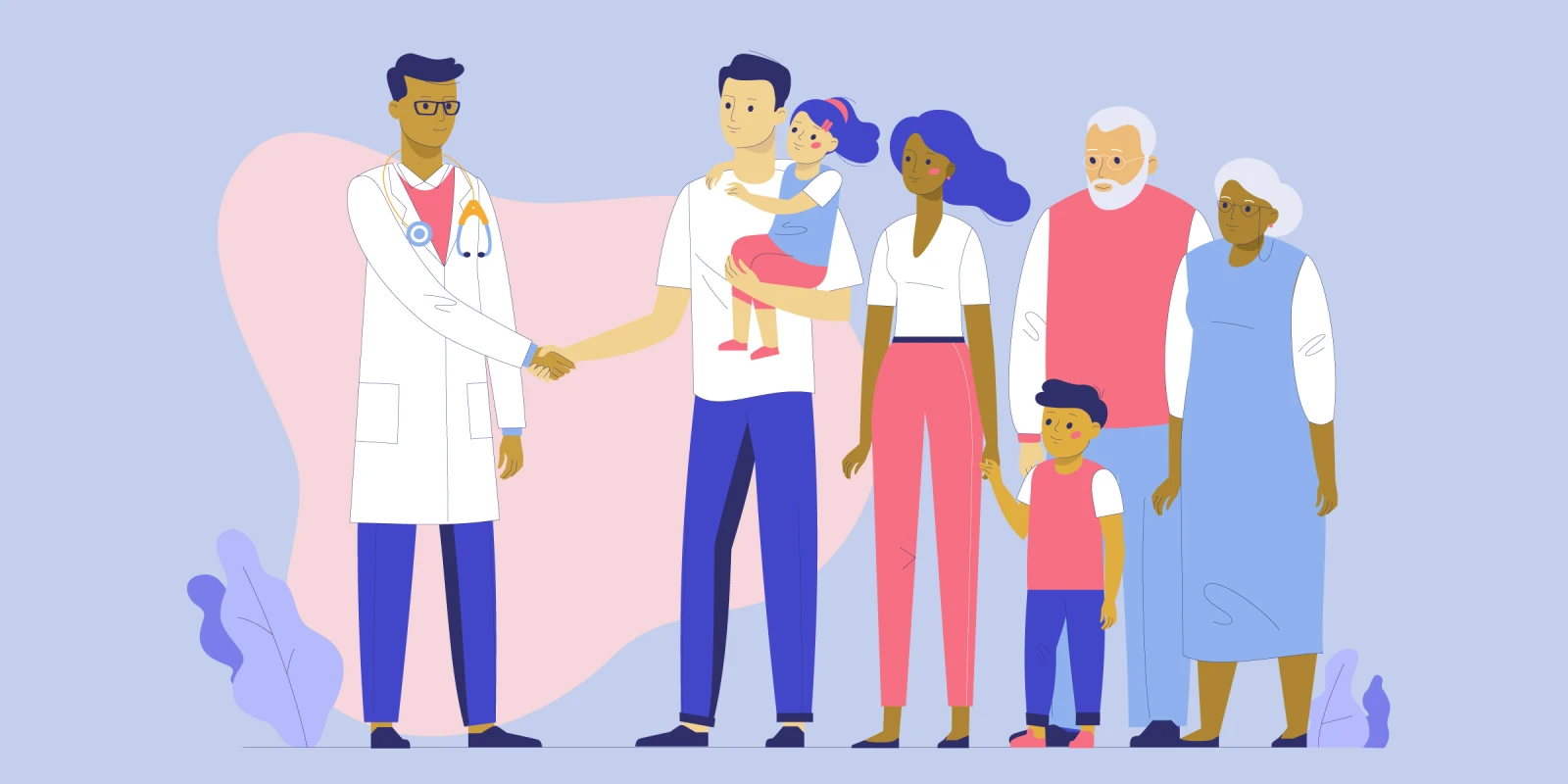I have been a member of the American Academy of Family Physicians (AAFP) since I was a first-year medical student. I knew I wanted to be a physician as early as middle school, but I realized during college that family medicine was the perfect specialty for me. I have grown up professionally within this organization and have stayed involved through leadership and advocacy efforts throughout medical school and residency.
This year, however, was my first Family Medicine Experience (FMX). This is the AAFP’s largest annual meeting — with more than 5,000 family physicians in attendance — and known as the Family Medicine Event of the Year. In true 2020 style, this year’s FMX was virtual, and I commend the AAFP staff for their efforts in making this year’s conference such a hit. For the last five days, I have been re-energized having networked with other family physicians all across the country, participated in most the updated and evidence-based online lectures, accepted an award, as well as presented both a case report and research project.
My favorite part of any conference, especially when we can gather in person, is seeing old friends and colleagues while meeting new ones. I was shocked that I was still able to have that same feeling of joy and connectedness via a virtual platform at FMX this year. I was so excited to reconnect with friends and mentors. The FMX Lobby provided us access to networking opportunities via themed virtual happy hours, receptions, coffee meet and greets, trivia night, mixology class, and a celebration performance by the band Chicago.
As a family medicine resident, I had the opportunity to submit my scholarly work for presentation on a national scale. Two projects that my co-residents and I collaborated on were selected to be presented among the latest research in family medicine via ePosters at this year’s FMX. I was excited that one of these projects was selected as a finalist in the resident research category, and after a separate video presentation we won third place out of 96 posters. To be able to present our research for other family physicians across the country to view was a valuable and memorable experience. I highly recommend medical students and family medicine residents put their work out there!
My favorite memory of this event was accepting the 2020 Award for Excellence in Graduate Medical Education along with 15 other family medicine residents. We were selected for exemplary patient care, interpersonal relationships with patients, physicians, and faculty, as well as demonstrating leadership and community involvement. I was humbled and honored to be recognized with such an amazing group of residents. In addition, this year’s AAFP Family Physician of the Year Award was presented to the 135,000 family physicians in our country. A beautiful tribute to the hard work, sacrifice, and service of family physicians in such unprecedented times.
FMX is the place to find the latest in evidence-based CME. With more than 150 sessions this year, topics ranged from pediatrics to geriatrics, women’s health, obstetrics, acute care, chronic disease management, musculoskeletal and sports medicine, telemedicine, clinical guideline updates, and many more. No matter how broad or narrow your scope of practice, there was a session for you at FMX. In addition, the Expo Hall had exhibits showcasing the latest and greatest in new products, services, and technologies for family physicians.
Another exciting and memorable aspect of FMX was the Main Stage Events. This year’s lineup of speakers did not disappoint! My favorites were the sessions by Dr. Ada Stewart, Dr. Uché Blackstock, and Dr. Anthony Fauci.
The newly installed AAFP President, Dr. Ada Stewart, started off the conference by sharing her family medicine story. She began by giving a shout out to her high school chemistry teacher who helped her realize her love for science. In addition to serving as a colonel in the U.S. Army Reserve, she is an expert in rural and underserved medicine as well as HIV and Hepatitis C care. She had been involved in various leadership roles within the AAFP and was especially proud of the fact that this year 12% more of medical students across the country went into family medicine.
Then, we heard a powerful and thought-provoking talk by activist and physician, Dr. Uché Blackstock, urging us to be intentional about mobilizing for health equity. She reviewed the concepts of provider bias and its effect on patients, race being a social construct, and how racism — not race — is a risk factor for disease. She was able to describe how the coronavirus pandemic has only magnified the racial health disparities in our world and challenged us with the task to intervene at whatever level we can to advance health equity.
The next day, we heard from Dr. Anthony Fauci, the Director of the National Institute of Allergy and Infectious diseases and the nation’s top infectious disease expert. He gave us an overview of the epidemiology, virology, pathogenesis, transmission, and current evidence-based treatments of COVID-19. As someone who has been on the front lines treating patients in our COVID-19 unit and in our outpatient pulmonary clinic, it was fascinating to hear the key adviser on national health crises under six administrations discuss this pandemic. He described how there are six clinical trials underway for a vaccine, and that he is cautiously optimistic that we will know by the end of the year if we have an effective one.
After attending my first FMX conference, I now realize what I’ve been missing. This is one of the largest gatherings of primary care providers in the country where family physicians, family medicine residents, and medical students can gather to create new connections and strengthen existing relationships while showcasing research, learning from evidence-based presentations, and celebrating family medicine. I am looking forward to next year’s — hopefully in person — event in my neck of the woods in Anaheim, California and FMX conferences for many more years to come.





